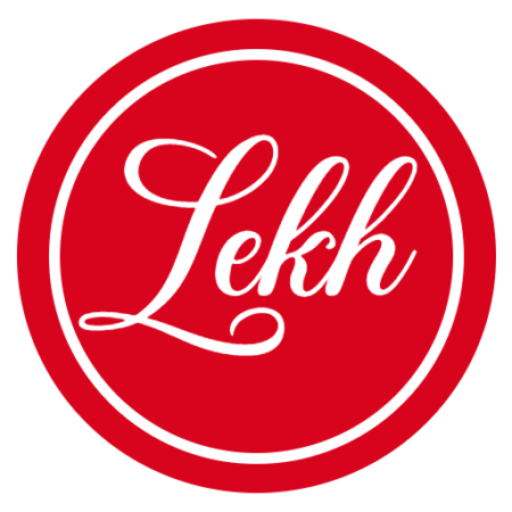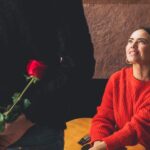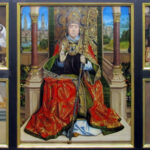Willem Bakker, a horse saddler born in 1874 in Rotterdam, navigated through World Wars I and II. Despite personal setbacks, he moved his family to Velp during WWI, ensuring their survival. His generosity and moral integrity shone through during WWII, securing his family’s future and reflecting the universal quest for freedom and safety.

Freedom, that's what many people around the world are still eagerly looking forward to. Freedom of thought and action, and above all action. Peace of mind, being able and allowed to think normally, not out of fear for your survival those spinning thoughts in your head repeatedly. Where am I safe? Today I find enough food for everyone I love, and whom I am expected to take care of. You don't pay a single second of attention to tomorrow without realizing it, no matter because. There are still thousands of seconds to overcome in safety.

Can you see the safety coming?
Safety in their actions, that is what many people miss in the unpleasant periods of unnecessary strife and war anywhere in the world. The idea of being able to dispose of the time that you may stay on this earth from our dear lord. For many people on our planet, living in freedom is still something they eagerly look forward to, sometimes day and night. Many don't even know that they lack the status of free human beings. These people are already so accustomed to the tyranny of others that they don't even know the meaning of being able to think and thinking autonomously.
Who do I often think about in my mind?
Picture: Willem Bakker and his wife Cornelia Maria van Eijck and there Grandchildren.
Europe at the beginning of the twentieth century, Amsterdam, the Netherlands. Willem Bakker, my grandfather (1874-1948), he was born in 1874 in Rotterdam. He was a horse saddler by trade. During this time, much work was done by the noble animal, the horse. Public transport and cars were few and far between, so walking and horseback riding came first. The wars and annexations were already in full swing all over the world. New York annexes the Bronx, and the Netherlands takes control of several territories in Indonesia. The first Dutch boat service offers a crossing to New York, while many people drown in a flood in the Netherlands.
How Spectacular Can Life Be?
Willem Bakker works as an itinerant horse saddler, mainly through the west of the Netherlands. On his journeys, he naturally encounters the female sex. His first wife he married in Leiden in 1899 was Alida Wassenaar, from whom he divorced again in 1906. In the same year, my grandfather married again to Barbara Johanna Killesteijn, a lady from Amsterdam from whom he divorced again in 1914. I have never been able to ask my grandfather about the reasons for these two failed divorces, as he died in 1948. He was a God-fearing man, who attended church weekly. During the two marriages described above, Europe was at war (1914-1918). Germany declared war on several European countries. This war will last for four long years. My grandfather does his thing in the neutral, war-thriving Netherlands.
Why does this trench warfare occur?
According to insiders, this war, which encompassed a large part of Europe, was caused by the fear that various government leaders had for the ever-expanding German Empire. Even though the Netherlands was impartial in this First World War, its impact was felt by the Dutch population. The logistical apparatus suffered a lot from combat action in the countries around them. It was especially difficult to get food in the west of the Netherlands. In 1914 my grandfather married again to Cornelia Maria van Eijck, a lady from Nederhorst ter Berg, a small village near Amsterdam. With this woman, my grandfather eventually had twelve children. At that time, people had to make sure that they had enough offspring, because they had to take care of them after their "retirement", there was no old age legislation yet.
Did the family have to move because of the devastating war?
Shortly after the outbreak of the First World War, my grandfather realized that he had to move away from the west of the Netherlands to another part of the Netherlands. The food supply came to a halt in the western part of the country, causing many elderly people to die. My grandfather and his family moved to the middle of the country, to Velp near Arnhem.
Was the move a blessing in disguise?
In Arnhem, the baker family initially had a happy (?) life. Business was fine, there were still many people at that time who transported themselves on the backs of horses. Horse saddles and harnesses also had to be repaired regularly. Cornelia and Willem did their thing and attended the church services of "De ouwe Jan" a small church in Velp, which had been named after a carpenter who took a break during a rain shower during one of the renovations of this church, and said because others thought that the construction site was not well covered: "Leave the old man in the rain, it will take care of itself." The peace lasted until suddenly the Germans got it back on their hips. Not all twelve children were living at home anymore when the Second World War broke out and plunged Europe into terrible chaos again. It was a terrible time for many people and the suffering was especially incalculable by the Jewish people who were almost exterminated.
How did the family survive this crazy war?
Fortunately, horses were still there, and of course they also had to be cared for and hung with new or repaired saddles and harnesses. My grandfather still had plenty of work. He was, as I wrote before, a God-fearing man, so he also distributed his "wealth" to the people who needed it in this terrible war. He made many repairs on credit, or strengthened loans to those who could not pay for his work immediately. Because of these loans, his own company almost got into trouble.
How did the liberation in the Netherlands go?
The liberation from the Germans became a fact on 6 June 1944 with the invasion of the Americans, Canadians, British and fourteen other Allied countries. It was a horrible event. First, a glider had to be sent inland. This aircraft was able to reach the bridge in France in utter silence, which had to remain intact under all circumstances to allow the Allied land troops access to the rest of the occupied countries. The order to the Allied soldiers was that they should always march straight ahead, against the violence. To look back or turn around meant certain death because of desertion. Tens of thousands of people were killed on Omaha Beach that day. A little later, the Netherlands was liberated as far as Arnhem. The rest of the country remained occupied by the Germans until May 1945, which led to a lot of famine in the occupied territories, rats and flower bulbs were eaten.
Was moving a blessing in disguise?
Fortunately, my grandfather and grandmother had made the right decision by moving to Velp in 1940. This village was liberated from the Germans in 1944. Because Velp and its surroundings had been a kind of main residence of the Germans, there had been a lot of fighting, a lot had to be rebuilt. My grandfather's business was bankrupt because of the money he had lent to those who could use it better in this crazy war. He was allowed to celebrate the liberation with his third wife and his twelve children but died in 1948. He had made the choice to leave his beloved west of the Netherlands, to give his children a better life without hunger. With this earlier decision, he also ended the Second World War a year earlier for these children, without being able to foresee it. My parents lived until 1981 and 1991. They enjoyed the years of liberation that the generation before them had given them.











